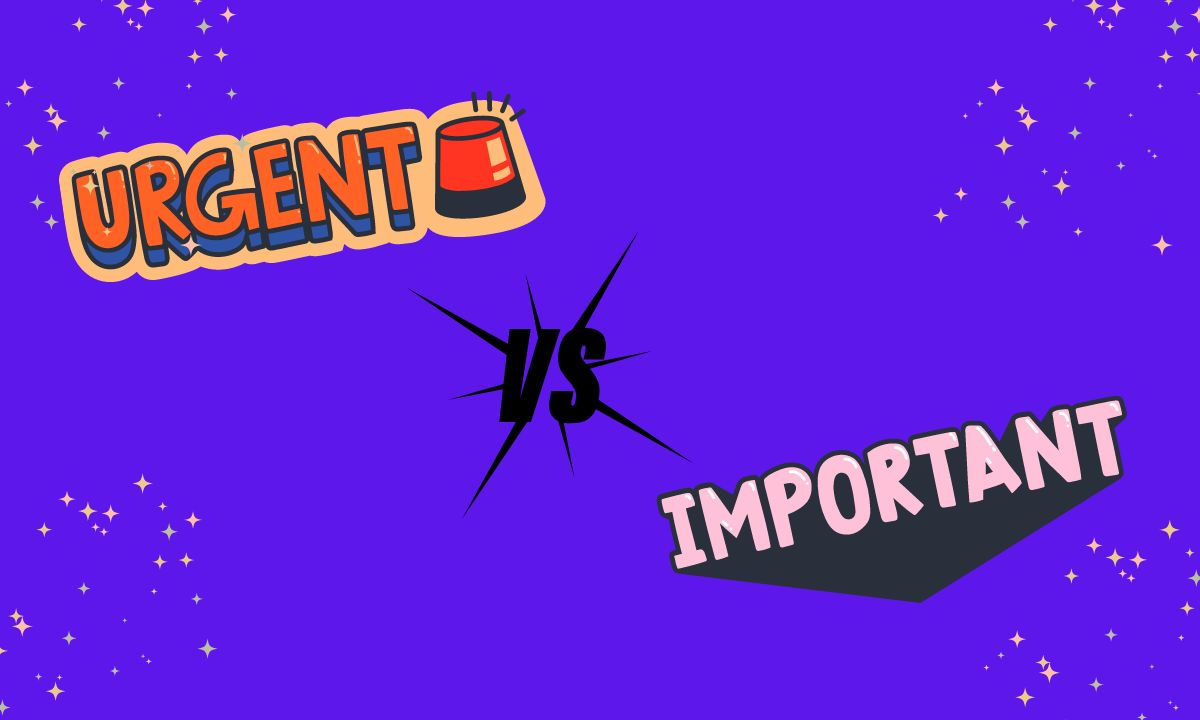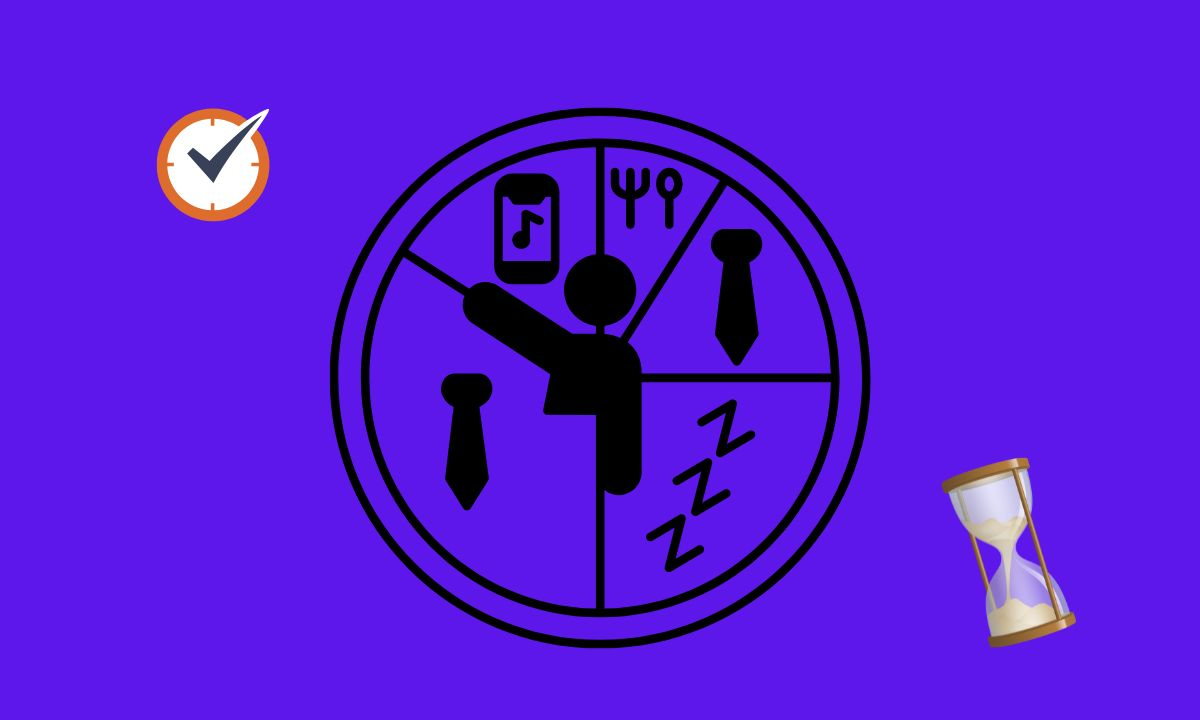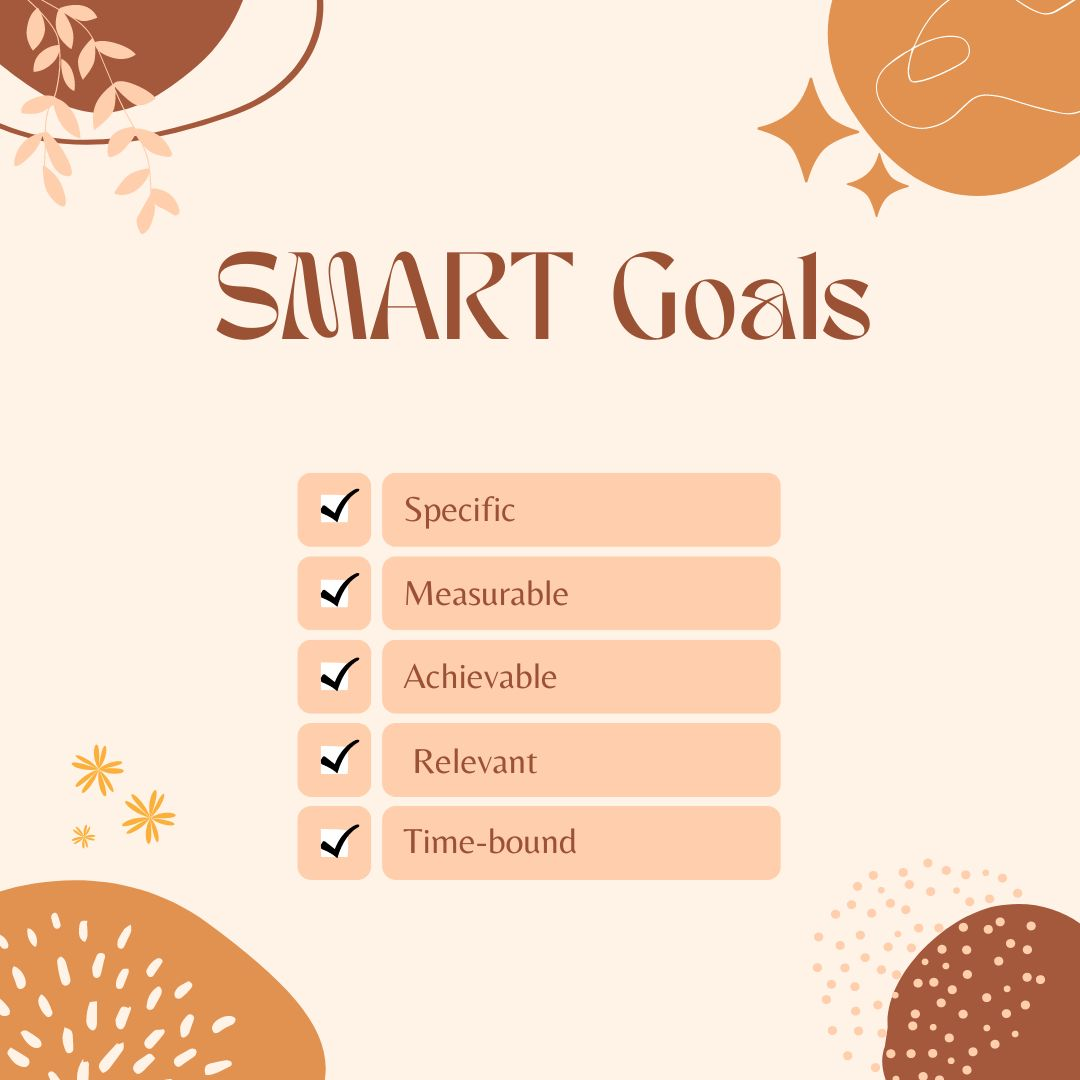7 Proven Strategies to Master Your Time Management Skills
Navigating the complexities of day-to-day life requires more than just good intentions; it calls for stellar time management skills. Whether in the arena of project management or the subtleties of our personal affairs, the way we handle our hours and minutes is pivotal.
Now, let’s be honest—there’s no magic formula for this because we all tick differently. Our aspirations, our rhythms, and our routines speak to a diversity that demands not just a static set of management skills but a personalized approach to time management skills.
Picture your days as a series of small journeys, peppered with important tasks that clamour for attention, to-do lists that stretch into the horizon, and the siren call of distractions that can lead us off course. Imagine having a compass that’s uniquely yours, guiding you forward as you expertly juggle these demands.
Fostering good time management skills is about more than just ticking off boxes; it’s about crafting strategies that fit like a glove. This involves:
- Identifying the important tasks and learning to prioritize them judiciously, keeping the urgency in check.
- Building flexibility into your schedule, letting your daily plan breathe and grow with you.
- Developing time management skills that sharpen your focus and create a fortress against inevitable distractions.

It’s this blend of personal development and time mastery that can elevate both your project management game and the quality of your personal life.
Throughout this article, we’ll be cultivating these time management skills together, seeking out the best versions of ourselves in the process. By developing a time management skillset that resonates with your values, you’re paving the way for success that’s not only achieved but also appreciated. Ready to embark on this journey of self-discovery and skill enhancement? Let’s chart the course.
Understanding Time Management
“Cracking the code to Time Management” is like a secret sauce that makes every tick of the clock count. Consider Time Management as an imaginary mentor, guiding you to use your time fruitfully and channel your efforts in the right direction.
You know those jam-packed days when your to-do list feels like an overpopulated city, each item jumping up and down, shouting, “Me first! Me first!”? Amidst this chaos, two types of tasks get the front-row seats – urgent and important.
The Urgent vs. Important Dialecti

Understanding the difference between urgent tasks and important tasks can make your life and decisions easier:
- Urgent Tasks:
- Require immediate attention
- Are tied to time-bound situations
- Often align with someone else’s goals
- May not contribute to your long-term vision
- Example: Attending a friend’s birthday party tonight
- Important Tasks:
- Are associated with long-term objectives and values
- May not demand immediate action
- Can largely impact your future outcomes
- Example: Preparing a presentation for a potential promotion next week
The challenge arises when you need to prioritize between urgent tasks, which demand immediate attention but may not align with your ultimate goals, and important tasks, which, while not urgent, substantially contribute to your long-term success. Clarity between the two is key to effective time management.
Mastering the Art of Prioritization
Grasping the concept of prioritizing tasks in time management helps you differentiate the critical tasks from the trivial ones.
It ensures you’re focusing on challenging tasks that align with your journey towards your overarching objectives, rather than getting entangled in trivial urgencies.
For instance, instead of dedicating the evening to a birthday party, you could prioritize and work on preparing the presentation, thereby ensuring long-term benefits.
The Ripple Effect of Effective Time Management
Mastering this balance is transformative in several aspects:
- Reduced Anxiety: You’re no longer perpetually overwhelmed.
- Control: You command your schedule instead of being a slave to it.
- Professional Growth: You can assign more time to different tasks that propel your career forward.
- Improved Mental Health: With less stress, anxiety, and chaos, your overall mental health flourishes.

Core Time Management Skills
Believe it or not, the art of time management isn’t confined to the wizards of productivity or the multitasking superheroes. It’s akin to a garden that we can nurture, even with non-urgent and non-essential tasks, applying patience and apt tools in a timely manner. Here’s the way I assign tasks and make sense of it all:
The To-Do List: Your Assistant
Your To-Do List serves more than just a record of tasks; it is an indispensable assistant in managing your time. It enables a strategic conversation with your future self, laying out the tangible objectives you intend to accomplish throughout the day.
The supremacy of a To-Do List in time management emanates from its ability to delineate ‘what’ needs to be done, allowing you to concentrate on the ‘how’. By doing so, it steers you towards a more organized, efficient, and productive day.
Prioritizing: The Chess Game of Tasks
In this context, consider the dilemma of ‘urgent’ versus ‘important’. An urgent task insists on immediate action, similar to persistent knocking on your door—it demands your immediate attention but may not be instrumental in your long-term aspirations. In contrast, an important task is akin to quietly investing in your future self.
Take, for example, dedicating specific blocks of time productively to your side project (important), which holds the potential to mould your future. This may well outweigh the perceived need to immediately answer an email notification (urgent).
This is how I focus on successfully completing tasks that matter and strategically manage my day to enhance my overall productivity, aiming not merely to respond to immediate demands but to proactively shape the trajectory of my day.
Delegating: The Multiplication of Efforts
Previously, I assumed I was required to conquer all tasks, both urgent and important, akin to sporting a superhero cape that’s two sizes too small—it’s uncomfortable and oddly ineffective. Delegate tasks became my method of summoning additional helping hands.
Let’s say there’s a project, part of my project management portfolio, and it involves some data entry. Could I do it? Absolutely. But recognizing the value of prioritizing tasks, it might be prudent to delegate this task to an eager colleague while I plunge into the deeper strategic planning arena, a task only I can handle adequately.
Time Blocking: The Art of Compartmentalization
Performing a balancing act each day can become tiring. That’s where Time Blocking, one of the most important time management skills, proves to be my lifeline. I envision my day in segments, akin to my customized TV programming schedule.
Each slot is dedicated to prioritize tasks. There’s a time allocated for meetings, a period for deep work, which often involves focusing on difficult tasks, and even breaks for a quick stroll or game.
For instance, last Tuesday, between 10 am and noon, my calendar was reserved solely for brainstorming, providing me complete freedom to think with zero interruptions.

Pomodoro Technique and Time Boxing: The Dynamic Duo
These are highly effective time management strategies that can help maximize productivity and focus. They are favourites of many, including myself, and can easily be adapted to suit your work style.
Pomodoro Technique
The Technique is centred around breaking your work into smaller, manageable intervals, ideal for tackling both simple tasks and large tasks. The method involves:
- Setting a timer for 25 minutes and dedicating this time to a single task.
- Staying focused on your chosen task throughout the entire 25-minute period.
- Taking a 5-minute break once the timer rings, provides a chance to refresh your mind.
- Repeating the process, and then taking a longer break (about 15-30 minutes) after completing four 25-minute intervals.
This cyclical approach to working and resting enhances productivity by preventing burnout and maintaining mental sharpness, helping you utilize time wisely.
Time Boxing
Time Boxing focuses on assigning a strict, fixed amount of time for specific daily tasks, encompassing both work-related responsibilities and personal activities. This method aids in preventing time-consuming tasks from disrupting your schedule. To employ time boxing:
- Assess the tasks you need to complete during the day, which may include tasks based on their urgency or complexity.
- Allocate a realistic, fixed time block for each task according to their importance and urgency, demonstrating self-discipline.
- Adhere to the designated time blocks, and when time runs out, proceed to the next task.
- Tweak and refine your time blocks as needed to enhance efficiency over time.
In a nutshell, time boxing assists you in governing your workday, establishing boundaries, and remaining on track with a well-structured schedule, ultimately helping save time and foster productivity.
Incorporating these two techniques into your daily routine can significantly enhance your time management skills. Remember that the ultimate goal is to make the most of each moment while striving for a fulfilling and balanced life.
Advanced Strategies in Time Management
In the time management game, ‘project management‘ is the advanced ability you unlock to conquer larger tasks, the ‘Level Bosses.’ It’s your special power-up, transforming daunting challenges into smaller, feasible mini-tasks. Sweep through these, and the big boss is de facto defeated!
Power-Up with Problem-Solving Skills
Every game is strewn with unexpected challenges — the surprise encounters. That’s where your ‘problem-solving skills’ come in — your survival kit in the face of adversity. It helps you tackle these sudden issues, morphing stumbling blocks into stepping stones.
Strategize with the Priority Matrix
Next up is the ‘priority matrix,’ your tactical master map. It sets up a cardinal compass, segregating your tasks into those that require immediate attention (urgent) and those that hold more weight (important), such as finishing a task due today (urgent) vs. planning a long-term project (important).
Master the Game with SMART Goals

Enter ‘SMART Goals’ — your learned cheat codes to ace this game. They guide you to set objectives that are Specific, Measurable, Achievable, Relevant, and Time-bound. You’re not playing blind anymore but with clear, achievable targets!
Sync with Google Calendar: Your Game Assistant
Accompanying you in this adventure, the ‘Google Calendar’ plays your faithful companion, keeping you posted about scheduled tasks, and deadlines, and providing an overview of your day, week, or month’s pending quests. It’s your trusted sidekick, ensuring you’re prepared for the difficult task ahead.
The Secret Weapon: Effective Communication
In this journey, the crowning jewel is the ability to ‘communicate effectively.’ Think of it as the secret ingredient that keeps the gears of your team well-oiled, ensuring that everyone is on the same page—whether it concerns time-sensitive projects or the more non-urgent tasks that can often be the silent culprits behind bottlenecks.
Harnessing this skill empowers each member to clarify their roles, establish mutually agreed-upon deadlines, and drive tasks to completion within the fabric of time effectively. It is the shared language of your crew, guaranteeing that each member knows their role in the grand mission ahead.
Meeting Deadlines

In the domain of time management, meeting your due dates is like winning a crucial battle in an ongoing war. It’s all about timely completion of missions—big or small.
To march towards this victory, you’ll need to arm yourself with several strategies. This could involve strategic foresight to anticipate challenges, swift actions to tackle tasks, and erecting interim milestones for an easier climb.
Maintaining a laser-like focus on your end goals is your navigation tool. Efficiently allocate your working hours, take short breaks to refresh your mind, and work smarter to boost productivity and make significant strides.
Remember, it’s not about clocking in longer hours, but about making every minute count. This approach not only helps you manage larger tasks by breaking them into digestible portions but also reinforces your status as a time management champion.
So, gear yourself up, fortify your skills, and welcome the impending progress you’re about to make in the world of time management!
Balancing Professional and Personal Life
Finding the perfect balance between work and personal life is an essential component of great time management skills, which make our days happier and more satisfying. Think of it like following a great recipe—utilizing time management to blend all the parts of our lives in harmony.
The Essence of Work-Life Seasoning
Life, when viewed as a masterfully crafted recipe, truly highlights the essence of a well-maintained work-life balance. It’s this special ingredient that infuses our days with joy and filters out the unpalatable stress.
By cherishing this balance, we weave a tapestry of contentment, threading together our work obligations and the hobbies that make our hearts sing.
Long-term Planning: The Preparation Stage

If you think of long-term planning as culinary prep work, you understand it involves dedicating specific blocks of time to marinate those personal activities, enhancing the overall zest of life.
When we regularly review our plans, we’re not just racing through our checklist for the sake of marking specific tasks complete; we’re appreciating each action, finding that each easier tasks we cross off contributes a unique flavour that enriches our existence.
Self-Reflection: The Flavor Check
Self-reflection is much like pausing to taste test in the middle of a bustling kitchen. It’s the quiet moment amid the clatter where you check if the spices of reduced stress and joy are perfectly balancing the dish of life. This mindful pondering can recalibrate our senses to the nuances of our well-being.
The Art of Cooking: Working Productively
Working productively is best likened to knowing when to sear and when to let your dishes stew. Urgent tasks need a fiery touch—a quick sear to seal the deal.
The important, yet not urgent tasks, those that add depth and richness to our lives, are the simmering stews, requiring patience and a lower flame of attention.
Sprinkled liberally with short breaks, these tasks ensure that our day is aromatic and flavoursome without the slightest hint of being overdone or burnt to a crisp.
Overcoming Obstacles and Fine-Tuning Your Skills
Navigating the unpredictable seas of life’s responsibilities can certainly put your time management skills to the test. Let’s break down how to overcome these common obstacles and fine-tune your skills, ensuring that every day can be a victory in its own right.
Anchoring Yourself Amidst the Storm

Imagine each day as a sailboat journey. Life’s hurdles — like missing deadlines or decreased productivity — are the gusts and squalls that threaten our progress.
But just like a sturdy anchor that steadies a ship, effective time management can secure our footing no matter how turbulent the seas are.
Crafting Your Day’s Narrative
Visualize your day as a book that’s eagerly waiting for its story to unfold. By dedicating specific blocks of time to our tasks, urgent or otherwise, we start to outline our plot. It’s like setting the scene for an epic tale, with you as the fearless protagonist.
Allocating hours for work and that friend’s birthday requires finesse, akin to developing a story’s characters. Consistent reviewing is akin to an author revising their drafts, ensuring our narrative is coherent and compelling.
Silence the Villains: Minimize Distractions
Distractions wait in the wings like villains, craftily hijacking scenes and weaving in plot twists that detour us from our various tasks. To work productively and write our best chapters, we must master the art of minimizing these disruptions and follow the priority matrix.
Should social networks act as the antagonists in your narrative, seize control by silencing notifications and delineating strict timelines for engaging with the digital realm, ensuring your productivity remains unscathed.
Urgent vs. Important: Balancing the Plot
A well-balanced story needs both thrilling cliffhangers and meaningful developments. Similarly, knowing the difference between urgent and important tasks is crucial for a well-managed schedule.
An urgent task might be akin to responding to a distress signal on your journey, needing immediate attention.
An important task, such as charting the course for your destination, requires investment for the long haul.
Time management is the compass that helps navigate these tasks, ensuring your story stays on course.
Celebrating Your Story’s Milestones
Each chapter closed and each page turned deserves its moment of applause. The triumph of completing tasks is like crafting your story’s moments of triumph.
Whether it’s wrapping up that project early or mastering a new recipe, rewarding yourself is essential. It cements the positive habits you’re building and adds a sprinkle of joy to the journey of life.
In the tapestry of days and weeks, regularly revisiting and fine-tuning our approach to managing time ensures each chapter of life is lived to its fullest. And so, the story goes on, with you at the helm, crafting a life of purpose, productivity, and celebration.
Conclusion

Mastering time management skills is an invaluable component for achieving success, both in our personal and professional lives. By becoming adept at prioritizing tasks, leveraging time-saving strategies, and striking the right work-life balance, you can accomplish your goals with efficiency and poise.
Strategic prioritization allows you to focus your efforts on tasks that significantly impact your long-term objectives, thereby optimizing your productivity. When you’re able to discern the urgency and importance of your responsibilities accurately, you ensure that no moment is wasted on trivialities, saving you both time and energy.
Investing time in understanding and implementing strategies such as the Pomodoro Technique, Time Boxing, and utilizing tools like To-Do Lists or Google Calendar can lead to a transformative shift in how you manage your day. These methods can sharpen your focus, help in keep track of the tasks at hand, and limit the distractions that hinder productivity.
Moreover, time management is not solely about enhancing productivity; it’s also about nurturing your mental well-being. With less clutter and chaos in your schedule, stress levels diminish, making room for a healthier and more satisfied personal life. You gain control over how you spend each hour, which means better quality time with loved ones, space for self-care, and engaging in hobbies that enrich your spirit.
Finally, I encourage you to adopt the time management skills we’ve discussed into your daily routine. Experience the profound benefits that come from managing time more effectively—fewer moments lost to stress, significant strides in your work, and a richer, more balanced daily existence await. With these skills at your command, watch your life transform into a symphony of well-timed, harmonious notes, each playing its part in your grand, fulfilled life story.
Frequently Asked Questions (FAQs)
What are the five keys to time management?
The five keys to effective time management include:
- Prioritization: Understanding what tasks are most important and focusing on them first.
- Planning: Outlining your tasks and allocating a specific time for each one.
- Delegation: Knowing when and how to pass tasks onto others who are suited to complete them.
- Setting Boundaries: Establishing limits to avoid overcommitment and distractions.
- Monitoring: Keeping track of your time and adjusting strategies as needed for efficiency.
What are time management skills?
Time management skills are the capabilities that enable an individual to use their time productively and efficiently. These skills involve:
- Setting clear goals.
- Prioritizing tasks based on importance and urgency.
- Planning and scheduling dedicating the right amount of time to the right activities.
- Delegating non-essential tasks when possible.
- Remaining focused and avoiding distractions.
What are the five principles of time management?
The five principles of time management are:
- Goal Setting: Clearly defining what needs to be achieved and by when.
- Task Analysis: Breaking down large, complex tasks into smaller, more manageable ones.
- Prioritization: Arrange tasks in order of importance and urgency to ensure that you focus on the most significant tasks first.
- Setting Deadlines: Establishing clear and realistic time frames to complete tasks, which helps to maintain focus and motivation.
- Time Allocation: Distributing adequate time to tasks based on their priority and the effort required to complete them.
Can you describe your time management skills?
My time management skills are anchored in prioritization and planning, allowing me to focus on tasks that offer the greatest impact. I delegate when necessary, set firm boundaries to separate work from personal time, and consistently monitor my efficiency to make proactive adjustments. These practices have resulted in improved productivity and a balanced lifestyle.
Author Box – Varun Kumar Sanghai is a Commerce graduate excelling in Accounting and Finance, renowned for simplifying complex concepts. A versatile enthusiast with passions ranging from Formula 1 to the NBA and stock markets, he brings a unique and informed perspective to every topic he dives into.
Here are some helpful job interview related blogs
- Tackling the final interview round
- How to answer ‘tell me about yourself’
- What are your career aspirations?
- Where do you see yourself in five years
- Why do you want this job?
- Strengths and Weaknesses In Interview
- Interview questions for managers
- Interview questions for freshers
- Tips to succeed in a job interview
- Do you need an Career coach / Interview coach?
Here’s some helpful career/leadership related blogs
- Careers– Agile Coach, RTE, Product Owner, Scrum Master, QA Manager
- Career development plan
- Career growth
- Project Management
- Managing Managers
- IT Career switch
- Software Engineering career path
- Agility, Agile Testing
- Remote leadership / Leadership traits
Other Productivity / Tools posts that may interest you
- Productivity
- Book summary apps – Headway App vs Blinkist vs getAbstract
- AI Writers: / Blogging – Jasper, Writesonic, Article Forge , Copy AI, Anyword, Writecream, Copymatic, Quillbot, Peppertype, Jasper AI (pricing) &
- Work From Home tools: Jabra
Author also writes at his Medium site.





